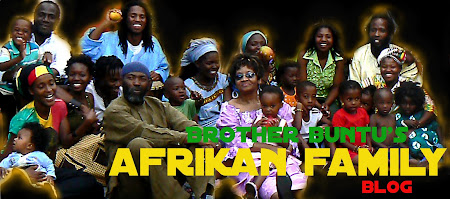In November 2008 I was invited by South African Men's Action Group (SAMAG) in Mafikeng, North West Province. This organization, under the skilful leadership of Governor Jabu oa-Afrika focuses on services related to HIV/AIDS, gender based violence, counselling, mentorship and peer-education. SAMAG specifically seeks to develop a forum where men's issues are dealth with in a genuine and solution-oriented way.
I was invited to coordinate their first Young Men's Camp, which was held in Rustenburg with 16 young men who had invited their Father Figures (male role models) along. During the three days program, participants worked from morning until late evening on issues of self understanding, boyhood vs manhood, fatherhood, violence, family, Afrikan history, sexuality and relationships. Several of the father figures shared some lessons from how they had dealt with past problems such as crime, rape, gang violence and abuse.
All the young men agreed that their ideal MAN is one who is responsible, family oriented, trustworthy, respectful and faithful. By admittance, most participants agreed that they had not necissarily spent much time in their life with men who fit this description. My task was to open their minds up to Understanding of Self and realizing that they can make choices to master Self, even in desperate situations.
The most striking element in the camp was that there was such diversity in personalities and characters, and, yet they managed to work together harmoniously and constructively. An atmosphere of trust, openness and honesty was soon established and there was ample room for fun, seriousness, learning and engaging. The Father Figures played a very important part in giving their "sons" encouragement and support. The program will continue for the next four months and I can't wait to see the results.
10-14 November 2008 I was invited to present a paper at the International Colloquium on "Teaching and Propagating Afrikan History and Culture to the Diaspora and Teaching Diaspora History and Culture to Afrika" in Rio De Janeiro, Brazil. The colloquium was organized by CBAAC (Centre for Black and African Arts and Civilization) in Nigeria and the Secretariat for the Promotion of Racial Equality in the President's Office of Brazil.
The colloquium gathered scholars and practitioners from around the Pan-Afrikan world and it was very exciting to meet so many visionaries propagating the importance of Afrikan history and culture. Themes were varied and included language, litterature, ancient and recent history, music, racism, arts, spirituality and identity. My presentation was on creative methodology in teaching history in communities, especially to young people.
What struck me was how the gap between Afrika and the Afrikan Diaspora have both been partly bridged and partly further widened. The discourse on Afrikan commonalities and bonds between the continent and its' diaspora is better understood and informs a Pan-Afrikan identity. Yet, at the same time, from an academic point of view, it is evident that our research, bibliography and methodological developments still exists in pockets without reaching out to the different countries, communities and institutions we operate within. Hopefully, this gap is made more narrow by initiatives like this colloquium.
This was my first time in Brazil and it was a humbling experience meeting many of the Afrikan Brazilian scholars and activists. Brazil has one of the largest Afrikan populations in the world (app. 100 million people of Afrikan descent), yet they are made virtually invisible and powerless. I met three community education colleagues, Fabio Gomes, Andre Luiz and Robson Cruz, who I spent time with and visited two favelas ("ghettos"). We exchanged information, methodology and teaching modules. Also, through meeting journalist Thais Zimbwe, I was able to visit a Black Film Festival and meet some of the organizers in Brazil's Afrikan community.
Visiting Brazil was en eye opener (especially in terms of how desperately we need to bridge the language gap in the Pan-Afrikan world) and great experience, it was only frustrating to stay so short. So, obviously, I want to go back! Some of the participating scholars and audience in the Rio Colloqium
Some of the participating scholars and audience in the Rio Colloqium Panel presentation on Afrikan culture and development
Panel presentation on Afrikan culture and development
 With community educators Robson Cruz, Andre Luiz and Fabio Gomes in one of Rio's favelas.
With community educators Robson Cruz, Andre Luiz and Fabio Gomes in one of Rio's favelas.
 Favela community in Rio De Janeiro
Favela community in Rio De Janeiro
 With Sister Chi (Brazil) , Brother Bankie (Ghana/Namibia) and Sister Thais (Brazil) at opening night of the Black Film Festival in Rio.
With Sister Chi (Brazil) , Brother Bankie (Ghana/Namibia) and Sister Thais (Brazil) at opening night of the Black Film Festival in Rio.









